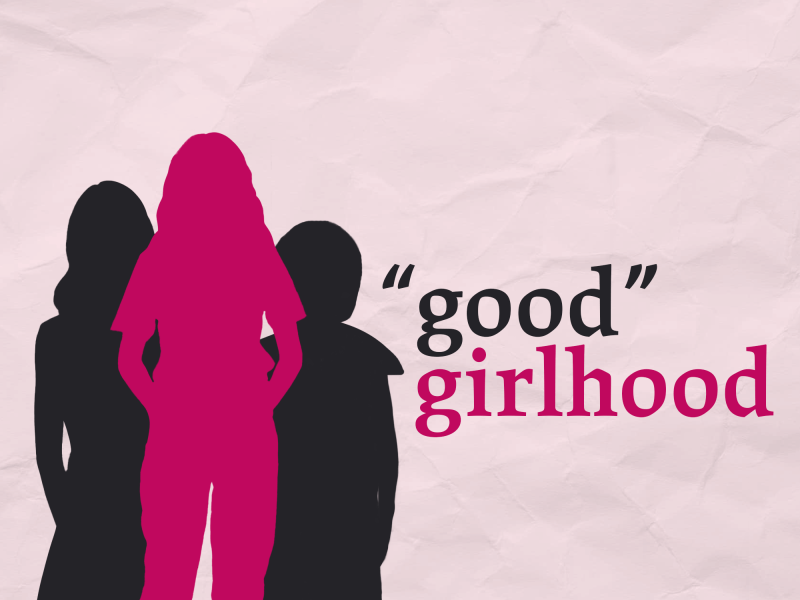While shooting “Priscilla” (2023), Sofia Coppola ran into budget issues. That isn’t surprising considering the film’s bold premise: perhaps grown men should not date teenagers.
Based on Priscilla Presley’s 1985 biography and written and directed by Coppola, “Priscilla” is another entry into the auteur’s canon dedicated to exploring the lives of young women. The film chronicles the tumultuous relationship between Priscilla and Elvis that began when she was in ninth grade. While there is no shortage of parents who are willing to trade their daughters’ youth and beauty for fame and fortune, Priscilla’s parents did not send her into the limelight — they consented for her to grow up in the shadow of Elvis’s starpower.
At the beginning of the film, Priscilla Beaulieu (Cailee Spaeny) is a 14-year-old military brat trying to adjust to life overseas. It is 1959 and her father is stationed in West Germany. Yet to make friends here, she dawdles over homework assignments at a diner after school. There, a member of Elvis’s (Jacob Elordi) entourage recruits her to attend a party with the then 24-year-old singer, who was also stationed there at the time.
Feeling guilty about moving their kids halfway around the world, Ann (Dagmara Dominczyk) and Captain Beaulieu (Ari Cohen) allow their daughter to attend a party at Elvis’s house. When they meet and Elvis finds out she is in ninth grade, he jokes that she is “just a baby.” Priscilla is excited to be in the presence of a star and too young to discern a compliment from a threat.
Throughout the film, Elvis refers to Priscilla as his girl so exhaustively that it begins to sound like an insult. This four-letter word is used to disguise his many sins.
Coppola’s direction is chock-full of extended closeups on Priscilla that feel as invasive as Elvis’s gaze, but Spaeny never overplays the emotion. She telegraphs Priscilla’s impish expressiveness, as well as the learned constraint that she develops as Elvis’s cruelty turns into violence. The actress breezily projects coldness without shivering.
Elordi does not look like Elvis, but he does incredible accent work to channel the entertainer’s Southern twang. His slight stutter and propensity to mumble combined with his uneasy body language are particularly effective for charming Priscilla and her parents — showcasing a reality wherein successful groomers have accomplices.
Coppola slyly takes aim at the cabal of adults in Priscilla’s life who note that she is much too young to be in Elvis’s circle. Instead of protecting her from his predation, they whisper about her after she leaves the room. Ann does some light hand-wringing about why Elvis cannot find someone his own age but she is satisfied with this remaining a rhetorical question.
Ann and Captain Beaulieu ultimately allow Priscilla to finish 12th grade back in the United States near Elvis’s Graceland estate, where she becomes another object furnishing his mansion. Elvis dictates Priscilla’s wardrobe choices and curates the look that becomes her signature — jet black hair and bold eye makeup. Elordi adopts a cocksure stance and puts bass in his voice. He is playing dress-up with his doll, and he does not play nicely.
Coppola has a propensity for creating dreamy montages of her female protagonists dotingly putting themselves together beyond the watchful eyes of the world. “Priscilla” includes several of these scenes — pink painted toes stepping gingerly on pink carpet, shiny red-lacquered fingernails applying winged liner and enough spritzes of Aqua Net to tease Priscilla’s hair to the heavens. Unfortunately, as her hair gets bigger, her world gets smaller.
Although the film is visually arresting, there is too much restraint in the depiction of Elvis’s emotional and physical abuse and the couple’s chronic sexual dysfunction after they are married. The reliance on subtext makes this part feel like a string of scenes instead of an exploration of her inner life. Coppola paints Priscilla as a survivor without naming what she has endured.
Disappointingly, more effort is made to show Elvis’s contrition after his violent acts than how those actions impacted Priscilla. Coppola’s filmography has been criticized for eliding issues of race and outright racism. “Priscilla” spans the 1960s, and notably there is no direct mention of the era’s political movements.
The latter half of the film drags as it veers into hagiographic territory (Priscilla Presley herself is credited as an executive producer, which may explain the saintly depiction). Priscilla is initially ambivalent about becoming a mother, but we do not see how she resolves this tension. It is unclear how she feels about being neglected in her marriage even as she is trying to leave it. Instead, we see her busy herself with activities — martial arts, swimming and hosting countless dinner guests.
Being long-suffering may be noble, but it doesn’t make for an interesting narrative arc. Still, Coppola’s “Priscilla” manages to interrogate what is at stake in our idealization of public figures. Money can be used to insulate oneself from problems faced by the masses, but celebrity — or even adjacency to it — can bring its own set of misfortunes.
Editor’s Note: This article is a review and contains subjective thoughts, opinions and critiques.
